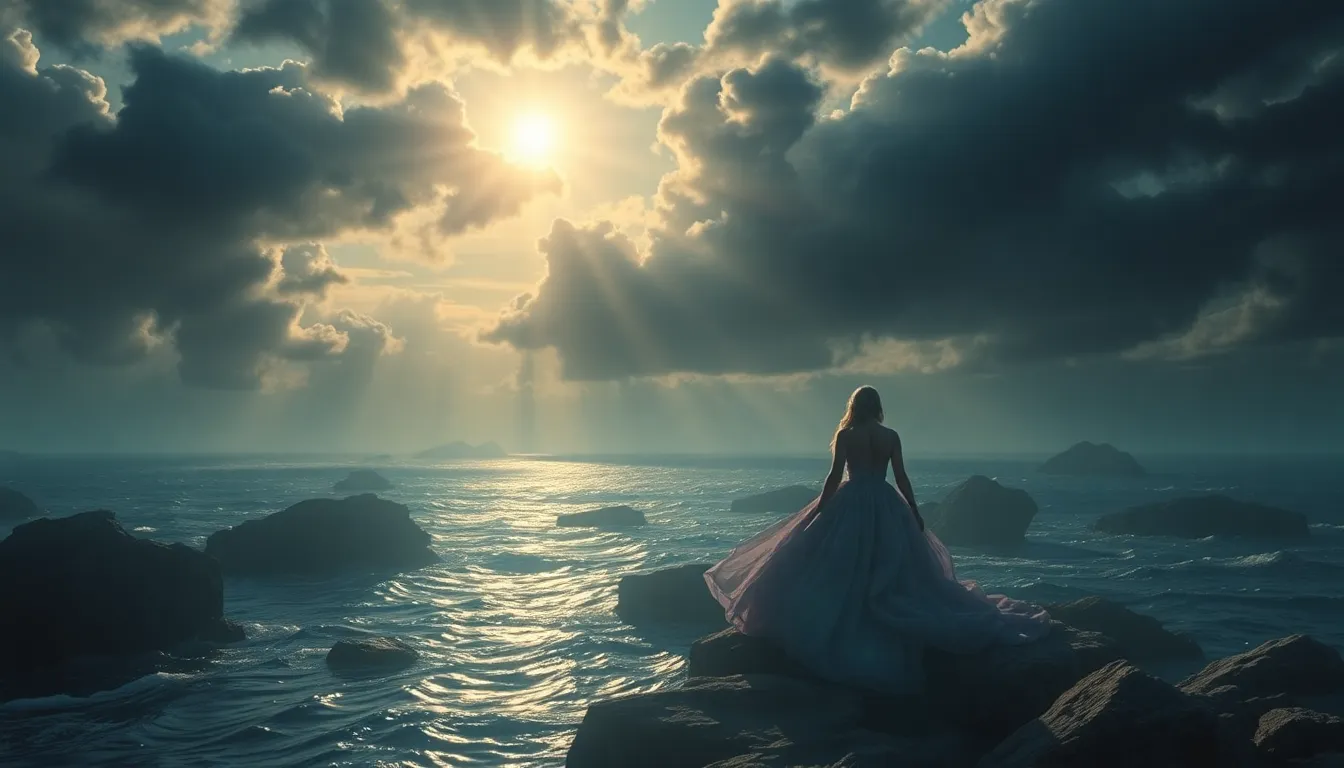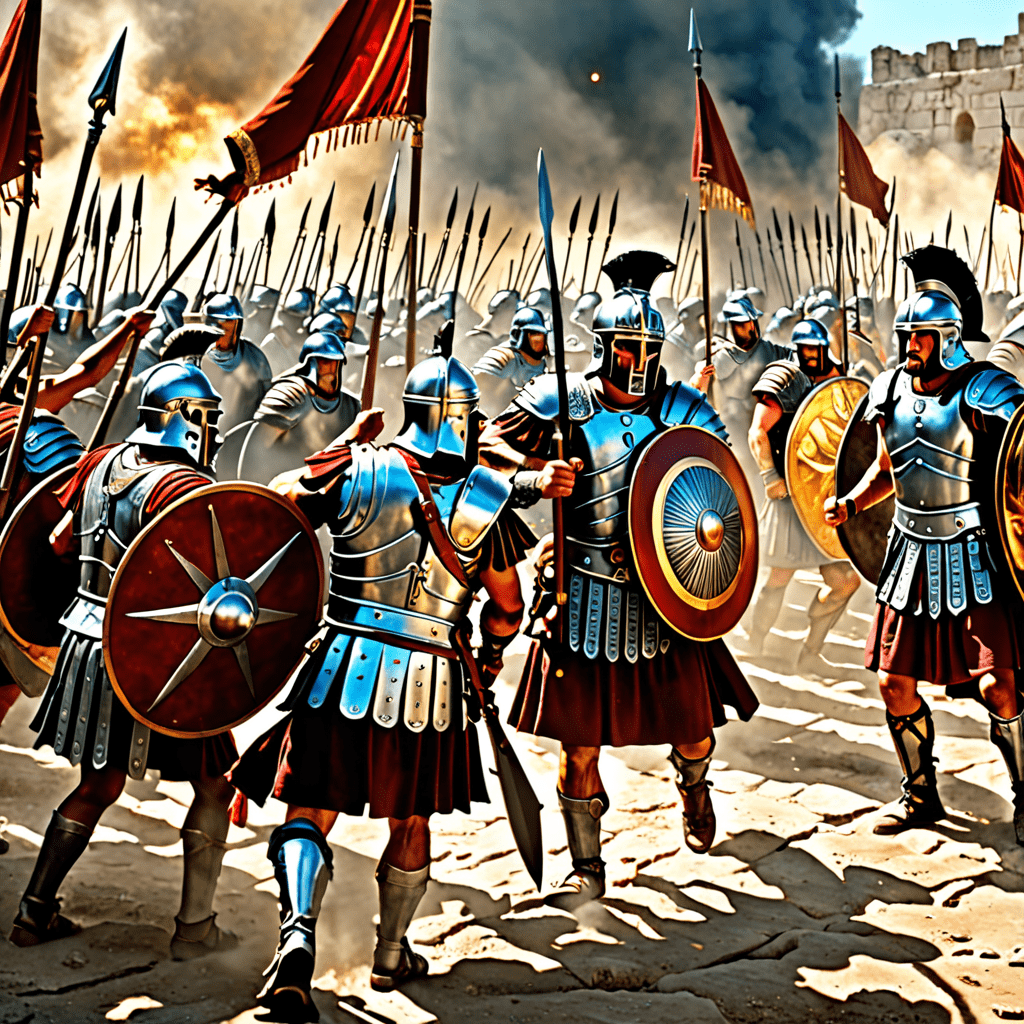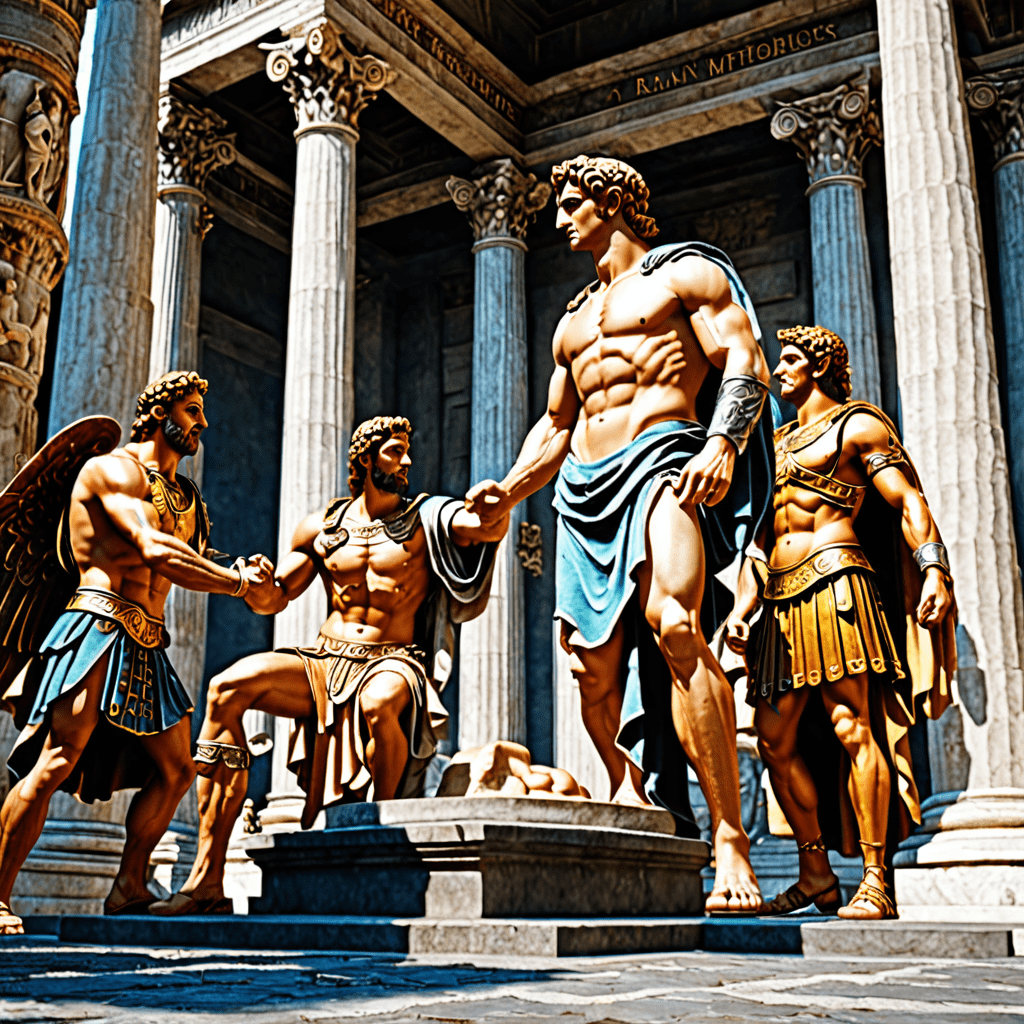Love’s Greatest Adventures: Epic Journeys in Mythical Romance
I. Introduction to Mythical Romance
Mythical romance encapsulates the profound and often otherworldly tales of love that transcend the ordinary boundaries of human relationships. These stories not only entertain but also illuminate the complexities, joys, and sorrows of love through the lens of mythology. The importance of love in mythology cannot be overstated; it serves as a central theme that drives narratives, shapes characters, and ultimately reflects the values and beliefs of the cultures from which these myths originate.
Throughout history, epic journeys in love stories have captivated audiences, inviting them to explore the depths of passion, sacrifice, and the supernatural. From ancient texts to modern retellings, the archetypes of mythical romance continue to resonate, reminding us of love’s enduring power and its ability to inspire adventure.
II. The Archetype of the Star-Crossed Lovers
One of the most enduring archetypes in mythical romance is that of the star-crossed lovers. This trope captures the essence of love thwarted by fate or external circumstances, eliciting both sympathy and admiration from audiences. Classic examples include:
- Romeo and Juliet: Shakespeare’s iconic tale of two young lovers whose families are embroiled in a bitter feud.
- Orpheus and Eurydice: The story of Orpheus’s descent into the underworld to reclaim his beloved Eurydice, only to lose her again due to a fatal mistake.
Common themes and motifs in these stories include forbidden love, tragic endings, and the notion that true love can exist despite insurmountable odds. The impact of these narratives is profound, influencing countless modern love stories that echo their themes of passion and tragedy.
III. Love in Ancient Mythologies
Ancient mythologies offer rich narratives that explore the complexities of love through divine and mortal interactions. Notable examples include:
- Greek mythology: The tale of Eros and Psyche illustrates the trials Psyche faces to win Eros’s love, emphasizing the transformative power of love and trust.
- Norse mythology: The love story of Freyja and Od highlights themes of longing and devotion, as Freyja searches for her lost husband across realms.
- Hindu mythology: The epic romance of Radha and Krishna embodies divine love, showcasing the spiritual connection between lovers and the complexities of desire.
IV. Legendary Quests: Love as a Journey
Many romantic myths are framed as quests, where love is not merely a feeling but a journey filled with challenges. These narratives often feature heroes and heroines embarking on adventures to prove their love. Examples include:
- Tristan and Isolde: Their love leads to a series of trials, including betrayal and conflict, demonstrating that true love often requires sacrifice.
- The quest for the Golden Fleece: Jason’s journey not only involves heroism but also his love for Medea, who plays a crucial role in his success.
The significance of trials and tribulations in these stories underscores the idea that love is worth fighting for, as the challenges faced often lead to personal growth and deeper connections.
V. The Role of Deities and Divine Intervention
In many love stories, the influence of gods and goddesses plays a pivotal role in shaping the fate of lovers. Deities often intervene in human affairs, either aiding or complicating romantic relationships. Case studies include:
- Cupid: The Roman god of desire, whose arrows can ignite love or cause chaos, symbolizes the unpredictable nature of attraction.
- Aphrodite: The Greek goddess of love, whose beauty and power impact numerous love stories, often highlighting the consequences of divine meddling.
The consequences of such divine interventions can lead to both joyous unions and tragic outcomes, reinforcing the idea that love is a powerful force beyond human control.
VI. Love Across Cultures: A Comparative Analysis
Examining love myths across different cultures reveals both similarities and differences shaped by unique cultural values. For instance:
- Similarities: Many cultures feature the archetype of the star-crossed lover, highlighting the universal nature of love and sacrifice.
- Differences: Cultural values influence the portrayal of love; for instance, some myths celebrate arranged marriages while others emphasize individual choice.
- Examples: African myths often involve communal love stories, while Indigenous narratives may focus on the connection between love and nature.
VII. Modern Interpretations of Mythical Romance
In contemporary society, mythical romances continue to inspire adaptations in literature and film. From retellings of classic tales to original stories infused with mythological elements, the influence of these timeless narratives persists. Modern interpretations often reflect current societal values and challenges, making them relatable to today’s audience.
The resurgence of interest in myth-inspired stories highlights a collective yearning for connection and understanding of love’s complexities, proving that the allure of mythical romance remains strong.
VIII. Symbolism and Imagery in Romantic Myths
Symbolism plays a crucial role in conveying the themes of love in mythical narratives. Nature and elements often serve as metaphors for love’s beauty and tumult. Common symbols associated with love include:
- Roses: Representing passion and romance.
- Doves: Symbolizing peace and fidelity.
Additionally, dreams and visions frequently appear in romantic quests, guiding characters toward their true desires or revealing hidden truths about their relationships.
IX. Lessons Learned from Epic Journeys in Love
Epic journeys in love impart valuable lessons about resilience, sacrifice, and hope. These narratives often reflect human experiences, showcasing how love can inspire individuals to overcome obstacles and grow. The enduring power of love is evident, as it transcends challenges and affirms the belief that true love is worth the effort.
X. Conclusion: The Timeless Nature of Mythical Romance
In conclusion, mythical romance remains a compelling exploration of love’s greatest adventures. The significance of love in mythology reveals deep truths about the human experience, reminding us that love is both a journey and a destination. As we navigate our own lives, the lessons learned from these epic tales continue to resonate, affirming that love, in all its forms, is a timeless and universal experience.



